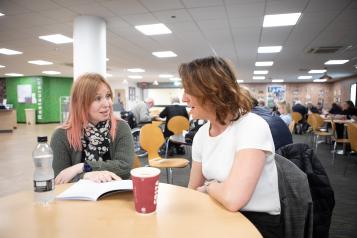Who Cares for the Carers?

A carer is anyone, adults or children, who looks after a family member, partner or friend who needs support because of their illness, frailty, disability, mental health or addiction. The care that carers give is mostly unpaid. According to 2021 Census data, there are around 4.7 million unpaid carers in England who care for a friend or family member. This equates to 8.9% of the resident population aged 5 years and over in England.
The 2021 Census data shows that, 10.2% of Stoke-on-Trent residents reported providing unpaid care to a family member or friend. With a population of 258,400 residents that means that approximately 26,000 people in Stoke-on-Trent are providing unpaid care. With 4.3% of Stoke-on-Trent residents (aged five years and over) reporting that they provide up to 19 hours of unpaid care each week.
This study provides an insight into what we have learned about being a carer in Stoke-on-Trent from the perspective of those with lived experience of caring. What we have learned from this work is that, whilst carers are a diverse group of people from different backgrounds with very different needs, there are many similarities in their experiences of accessing services and the impact that caring has on their health and wellbeing.
When someone begins their caring journey, at the point of recognising or being recognised as a carer, the systems are confusing. This was evidenced with many carers not receiving a carers assessment and being unaware they were entitled to one.
Carers generally found it difficult to navigate through a maze of information and services and encountered barriers when accessing statutory services and support from the NHS, social care services and education in particular.
There are services out there who provide excellent support for carers, and this was acknowledged in the very positive comments received by carers who were in contact with support services through North Staffs Carers, Approach, Young Carers, and other support groups which people highly valued.
Some carers, particularly older carers, reported that they did not have access to, or use of, the internet Some did not want to have to use this method to access information, but others cited cost and lack of skill as a barrier.
It is important to pay attention to the educational needs of young people who are carers and that schools receive information and training on how best to support young people to keep up with schoolwork and participate in school life generally.
In order to meet the range of different needs of carers in Stoke-on-Trent, there are further actions that are required for the carers strategy to fulfil its 5 priorities which we comment on in our report.


